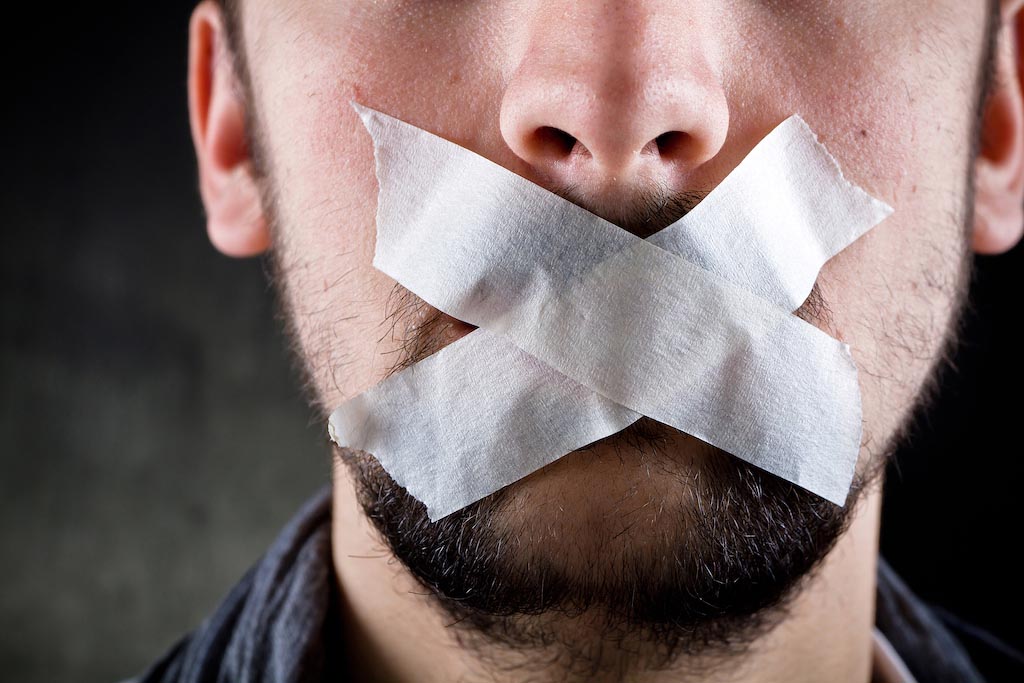Written by: Janja Strah, Demokracija magazine
On Tuesday, 2 October, the national Council for the Protection of Freedom of Speech (Svet za svobodo govora) was established in Slovenia within the framework of the freedom-loving association Council for Republic (Zbor za Republiko). “As we believe that freedom of speech as a universal human right and liberty is under threat in Slovenia today, the Council for the Protection of Freedom of Speech is hereby established,” the Council said at the time of its establishment. Jože Biščak, deputy editor of Demokracija magazine, became the Council’s chairman.
The Slovenian Council for the Protection of Freedom of Speech believes that the current government is increasingly restricting freedom of speech. The latest case, where the government’s Agency for Communications Networks and Services (AKOS) demanded the withdrawal of a programme on TV3 under threat of force and fines because a guest on the programme criticised the Speaker of the National Assembly, who is a member of the ruling coalition, shows that the centre-left government is not tolerant of dissenting opinions and criticism. That is why the main task of the Slovenian Council for the Protection of Freedom of Speech will be to work to protect freedom of speech – so that everyone can express their views publicly without suffering negative consequences, such as the threat of violence or imprisonment, for the things they say. The Council will respond to violations of freedom of speech as a fundamental human right and liberty.

The Slovenian Council for the Protection of Freedom of Speech will be an open group that expects its supporters and members to work for freedom of speech and never to restrict the freedom of speech of others because of their different views.
The President Jože Biščak stated: “I never imagined that under the current left-wing government, times would be so bad for freedom of speech. The imprisonment for satire (glosses), the numerous denunciations and interrogations for what was said or written, the persecution and harassment of journalists and editors, the state ordering Nova24TV and TV3 to cut out a part of a TV report, the threats of Prime Minister Robert Golob to close down some media – all this is heading towards dictatorship. It does not bode well for freedom of speech in the future either. Although it is a constitutionally protected right, it needs to be further protected against abuses by the legislature, the executive and the judiciary. That is why the Council for the Protection of Freedom of Speech has been established.“
We publish the full statement of the Council for the Protection of the Freedom of Speech, which was adopted at the time of its establishment.
Statement by the Council for the Protection of Free Speech
As we believe that freedom of speech as a universal human right and liberty is under threat in Slovenia today, the Council for the Protection of Freedom of Speech is hereby established. The Council’s fundamental task will be to ensure that everyone can publicly express opinions and views in accordance with his or her worldview without fear of being persecuted by the authorities for his or her words.
Freedom of speech is the cornerstone of any democratic and free society. Throughout history, it has helped to ensure that knowledge has been passed on from generation to generation and that fierce debates, sometimes with offensive rhetoric, have been held in the pursuit of truth, leading to the best solutions that have brought prosperity to the world. Without freedom of speech, the world would not have made the technological progress it has. As a constitutionally guaranteed right, freedom of speech allows the circulation of ideas and the free exchange of information between individuals without interference from state authorities. Indeed, freedom of speech encourages others to say what they disagree with us about and where they think we are wrong.
The Council strongly rejects attempts by any government to prevent people – who do not share the ideological or other views of the government of the day – from expressing their views on any issue to the world through laws, the creation of various government councils and intimidation.
The Council believes that the state has no right to prevent or restrict anyone’s freedom of expression. We believe that public confrontation of different views is the only way to remain and become an even better free and democratic society. Any authority that not only cannot tolerate harsh and sharp criticism, but also denies the right to any criticism, is an enemy of freedom of speech and is therefore prone to autocracy.
In the Council, we are people of different definitions and different positions on many issues. That is why the Council for the Protection of Freedom of Speech is an open group, but one that expects its supporters and members never to restrict the freedom of speech of others because of their different views and opinions.
The Council believes that respectful and tolerant public communication is not a matter for legislation or other government regulations, but a matter of principles and the way a free individual acts.
The Council believes that the current legislative and constitutional framework sanctioning incitement to violence is sufficiently broad (if not too broad) and that Slovenia does not need to further strengthen its legislation. In particular, no legal ‘victimisation’, i.e. the prior granting of victim status to certain groups of people in order to protect them from any criticism and negative opinions about their actions. The principle of ‘victimisation’ is prone to abuse, as any offended party or group, under the cover of vague and undefined terms, may consider that criticism against them is incitement to hatred and intolerance.
The Free Speech Council is committed to the ‘Voltaire principle’: “I disapprove of what you say, but I will defend to the death your right to say it.”

